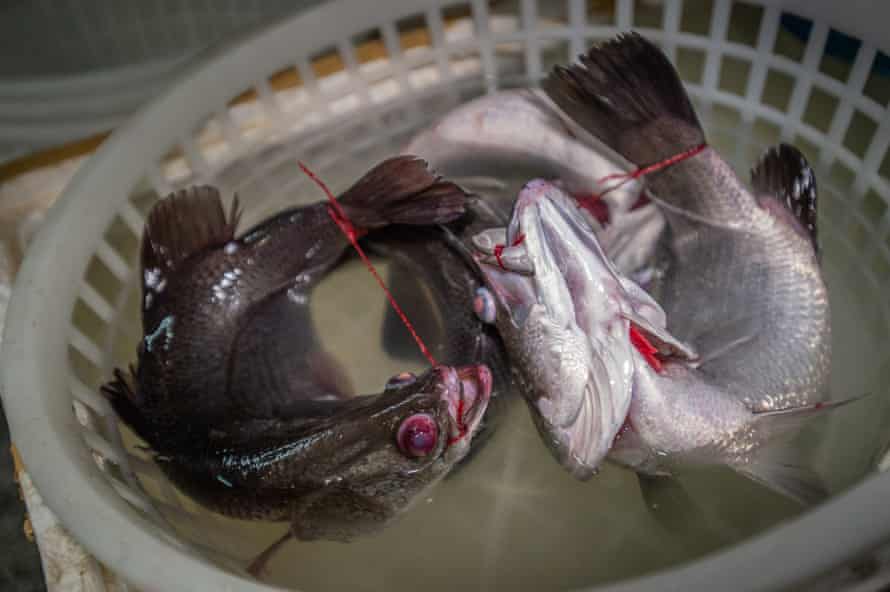Those who care about the welfare of fish and seafood should opt for clams, mussels or seaweed, according to a new report, which says popular fish, including farmed Atlantic salmon and trout, have more complex welfare needs and are more likely to experience pain and suffering.
There is no scientific evidence of the behavioural and environmental needs of nearly 80% of aquatic species, an analysis of more than 400 species farmed around the world found.
The “enormous” lack of information is “going to translate into extreme suffering for individual animals”, said report co-author Becca Franks, a research scientist at New York University.
The report, published in the journal Science Advances, found that a failure to provide the right environment and to handle aquatic animals correctly can lead to birth defects, restricted mobility, aggressive behaviour and extreme pain during slaughter.
It recommends that the aquaculture industry focuses on the cultivation of simpler species with fewer welfare and environmental risks – seaweeds and bivalves such as oysters, mussels and clams.

Highly intelligent animals such as octopus should not be farmed at all, said Franks.
The global aquaculture industry, valued at $250bn (GBP182bn), has boomed over the past few decades. While it has been framed as an answer to the exploitation of wild fish populations, aquaculture has been criticised for negative impacts including pollution, dependence on wild fish for feed and overuse of antibiotics.
The study says welfare should also be considered. Fish have long-term memories, can solve problems, cooperate between species and – contrary to previously common beliefs – feel pain. Cephalopods, such as octopuses, can solve puzzles, navigate mazes and open jars. Spiny lobsters have sophisticated navigation skills and crayfish show emotional behaviour, including anxiety and stress.
While there are legally enshrined welfare standards for terrestrial farmed livestock, the report says standards are often weak or absent for aquatic animals. Many of the species farmed are often not biologically suited to life in captivity, says the report. “We’re really just engaging in this massive experiment with almost no information about who these animals are,” said Franks.
Rainbow trout and Atlantic salmon, for example, are heavily farmed, but “are very aggressive and they don’t like being with others”, said Lynne Sneddon, a biologist at the University of Gothenburg and an expert on fish pain. Species such as tilapia, however, are more suited to being farmed as they are far more sociable and happier in higher densities, she added.
Some aquatic farms in countries such as Norway and the UK have welfare standards, but have come under fire for cramped sea cages, sea lice infestations, which cause painful lesions, and high mortality rates.
Waitrose and the Co-op both halted supplies of farmed salmon from a plant owned by the Scottish Salmon Company in February, after a video emerged of fish being left on the floor to suffocate and their gills being cut while they were still conscious.
“These animals are sentient beings,” said Sneddon, “they are capable of experiencing pain, fear, stress, and yet we farm them in conditions that would not be acceptable for mammals or birds.”
Janneke Aelen, standards coordinator at the Aquaculture Stewardship Council, a science-based certification body for fish farming, agrees that the science behind welfare is less than ideal, “but things are improving rapidly in terms of research being undertaken and made available, and there is a huge opportunity to further address welfare”.
Sign up for the Animals farmed monthly update to get a roundup of the best farming and food stories across the world and keep up with our investigations. You can send us your stories and thoughts at animalsfarmed@theguardian.com